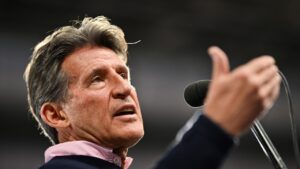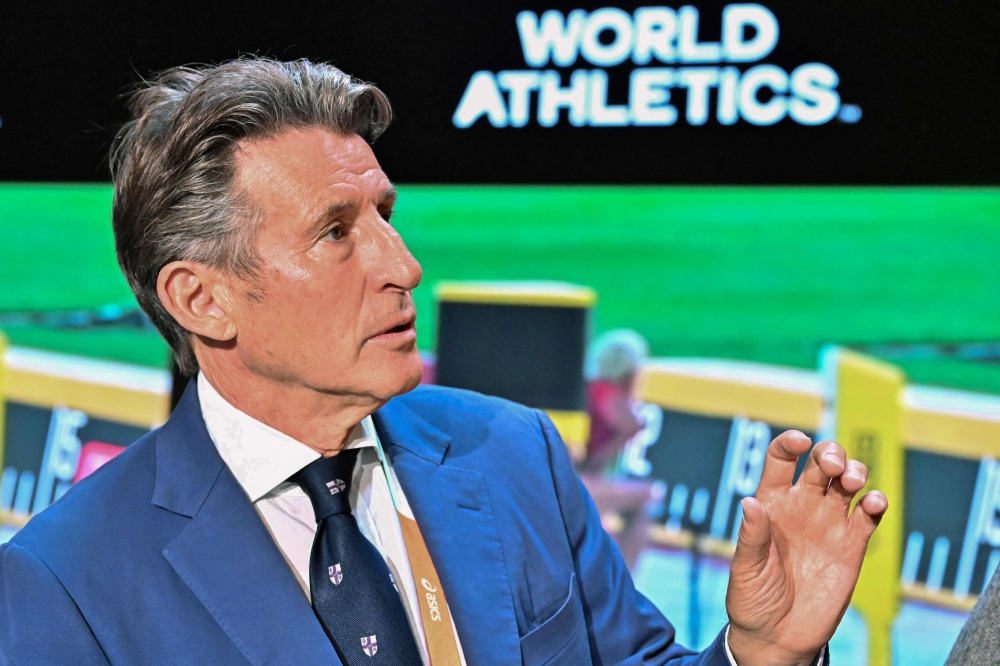Sebastian Coe’s statement underscores his commitment to his principles and convictions, regardless of public opinion. Throughout his career and life, Coe has maintained a steadfast approach to making decisions based on what he believes is right, even if it means facing criticism or being unpopular in the short or long term.
This mindset is often crucial for leaders and individuals in influential positions, where tough decisions and actions may be necessary for progress or maintaining integrity. Coe’s willingness to prioritize what he believes is right over popularity highlights his dedication to upholding values and making choices that align with his beliefs, regardless of the external pressures or perceptions.
His approach reflects a sense of responsibility and leadership that prioritizes long-term impact and integrity, serving as an example of steadfastness and conviction in leadership and decision-making.
Sebastian Coe, the 67-year-old president of World Athletics, has positioned himself as a leader who values the restoration of integrity and credibility within the governing body since assuming office in 2015. Despite his achievements in revitalizing World Athletics’ reputation, Coe remains modest about perceptions of his leadership style. He acknowledges that others are best suited to evaluate whether his decisions stem from an independent streak or steadfast adherence to his personal convictions.
This statement reflects Coe’s humility and his focus on accountability to stakeholders within the athletics community. It suggests a willingness to subject his leadership to scrutiny and evaluation, emphasizing transparency and responsiveness to feedback. Coe’s approach underscores the importance of leadership that balances assertiveness with openness to perspectives and criticism, fostering trust and credibility in governing international sports.

Sebastian Coe’s statement reflects his resolute approach to leadership and decision-making, particularly in the context of his role ahead of the Paris Olympics. He asserts that he doesn’t lose sleep over public opinion regarding his actions or the positions he takes, emphasizing that he prioritizes doing what he believes is right over conforming to popular sentiment.
Coe’s reference to “leaving the herd” suggests that he is willing to make independent choices and steer the course he deems best for World Athletics, even if it diverges from prevailing norms or expectations. This steadfastness underscores his commitment to integrity and principles in governing international sports, despite potential challenges or criticisms that may arise.
Overall, Coe’s approach highlights the resolve and clarity of purpose necessary for effective leadership, especially in high-stakes environments like international athletics. It reflects a mindset focused on long-term goals and maintaining the integrity of the sport, regardless of short-term perceptions or pressures.
Sebastian Coe’s decision to ban Russian and Belarusian athletes from competition following the invasion of Ukraine demonstrates a firm and principled stance by World Athletics. This action sets World Athletics apart from many other federations that may have taken less stringent measures in response to the geopolitical situation.
Coe’s hardline stance reflects a commitment to upholding values of integrity and accountability within the sport of athletics. By implementing such bans, World Athletics aims to send a clear message that actions with serious international consequences, such as military invasions, have repercussions in the realm of sports participation.
This decision underscores Coe’s leadership in navigating complex global issues and making decisions that prioritize the welfare of athletes and the integrity of international competition. It also reflects World Athletics’ role in promoting fairness and adherence to ethical standards within the broader sports community.
Sebastian Coe’s reference to the Moscow Olympics in 1980 highlights a significant moment in his personal and political history. At that time, Margaret Thatcher, whom Coe later worked for, strongly advocated for a boycott of the Games in protest against the Soviet invasion of Afghanistan.
Coe’s participation in the Moscow Olympics despite his government’s opposition underscores his commitment to sports and his own principles at the time. This experience likely shaped his understanding of the intersection between politics and sports, influencing his approach to leadership within World Athletics decades later.
By recalling this historical context, Coe provides insight into how past events have influenced his perspective on current issues, such as the recent bans on Russian and Belarusian athletes. It reflects his awareness of the broader implications of geopolitical actions on international sports and underscores his determination to uphold principles of integrity and fairness in his role as president of World Athletics.
Sebastian Coe’s reference to being at risk of deselection as a Conservative candidate due to his decision not to participate in a rebel tour to South Africa sheds light on a pivotal moment in his career and political journey. During the apartheid era, there were instances where sports teams, despite international sanctions, would tour South Africa, which was widely condemned due to its discriminatory policies.
Coe’s choice not to join such a tour likely stemmed from ethical considerations regarding apartheid policies and the global consensus against them. This decision may have placed him at odds with some political peers and supporters at the time who had different views on the matter.
His willingness to stand by his principles, even at the risk of political consequences, reflects a strong sense of integrity and conviction. It also underscores his broader understanding of the impact of sports on political and social issues, a perspective that continues to influence his leadership in the realm of athletics.
Overall, Coe’s experience highlights the complexities of navigating sports, politics, and ethics, demonstrating the importance of leadership guided by principles and values even in challenging circumstances.
Sebastian Coe’s reflections on his heritage and family background provide insight into the personal values and influences that have shaped his life and decisions. His acknowledgment of his Indian grandfather and mixed heritage underscores a connection to diverse cultural roots and the importance of family in his upbringing.
Coe’s decision to prioritize his familial relationships and values over potential political or public consequences, such as facing Margaret Thatcher’s disapproval, speaks to his sense of integrity and loyalty to his personal convictions. This decision reflects a deep respect and consideration for his mother’s perspective and values, which were undoubtedly instrumental in shaping his character and approach to difficult decisions.
His reference to Woody Allen’s agnosticism humorously underscores the complexity of identity and upbringing, highlighting how individuals navigate various influences and choices throughout their lives.
Overall, Coe’s remarks provide a glimpse into the personal philosophies and influences that have guided his career and leadership, emphasizing the importance of integrity, family, and cultural heritage in shaping his worldview and decisions.
Sebastian Coe’s description of his upbringing reveals a rich tapestry of influences that have shaped his perspective on politics and activism. Growing up in a household where his father was an old-school Socialist and his mother an old-school Liberal, Coe was exposed to diverse political viewpoints and discussions from a young age. His parents’ active participation in anti-Vietnam War demonstrations during the 1960s further underscored their commitment to social and political causes.
The bohemian atmosphere of his upbringing, characterized by open discussions and engagement with current events, likely contributed to Coe’s own inclination towards leadership and involvement in issues of significance. This upbringing equipped him with a broad understanding of different political ideologies and a sense of social responsibility that continues to inform his decisions and actions today.
Coe’s background highlights the intersection of personal history, family values, and public engagement, illustrating how these factors have shaped his identity and leadership style. His openness to diverse perspectives and willingness to take principled stands on global issues reflect the enduring influence of his upbringing in shaping his approach to leadership within World Athletics and beyond.



